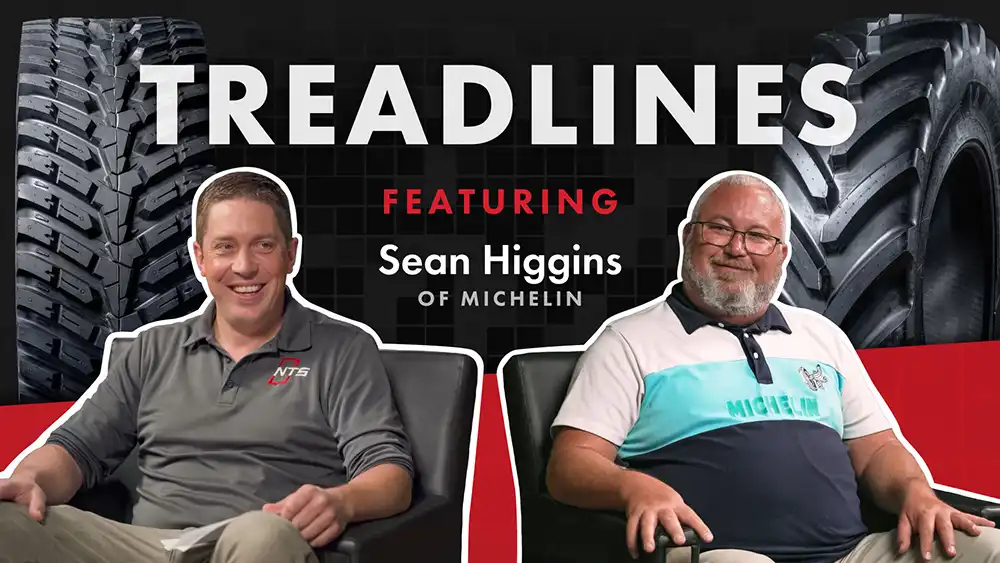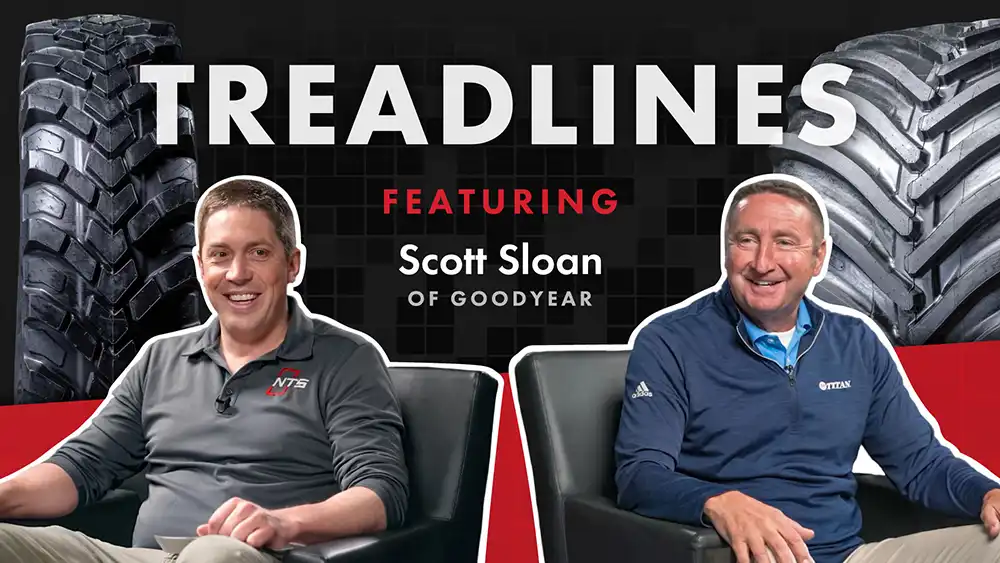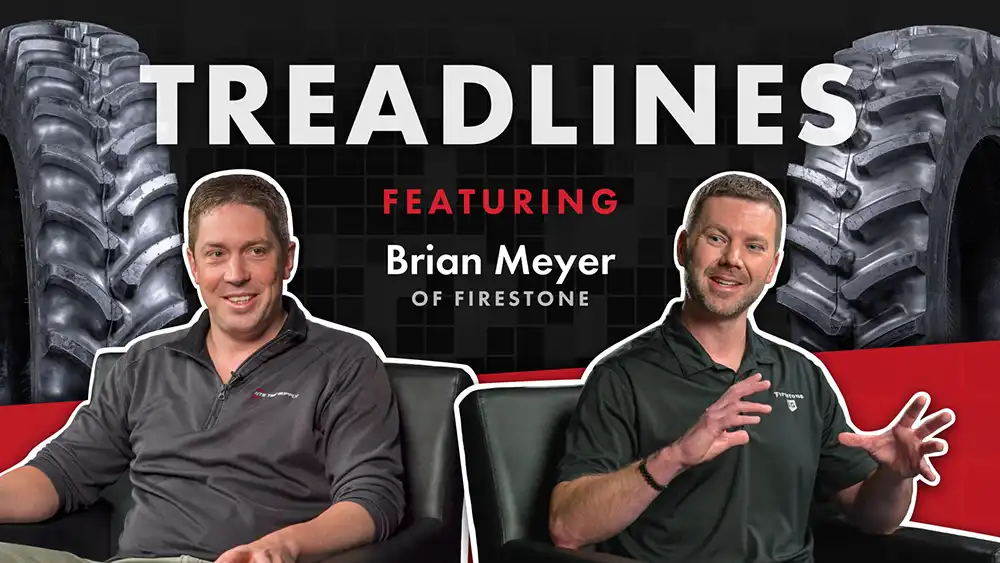Wet fields and heavy sprayers can be a devastating combination. But if rapidly growing weeds or an insect infestation requires your immediate attention, staying out of the field to wait for drier weather may not be an option. In these cases, sprayer duals may be a solution worth your consideration. Here are 7 things—good and bad—to consider before you outfit your sprayer with duals.

1. Duals keep you in the field and between the rows.
The extra footprint from sprayer duals will help you float over tough field conditions while saving you fuel and time. You’ll also find it easier to keep your sprayer between the rows in both wet and moderate field conditions. The side-to-side “boat-like” steering, which is common in wet fields, will become more like the sports-car handling you desire.
2. Our customers love their sprayer duals.
In our experience, customers who have added duals to their sprayers are overwhelmingly pleased with their performance. Yes, road travel can become more challenging with the added machine width, but they gladly deal with that drawback knowing that they’re going to get their fields sprayed on time and without fighting to keep their tires between the rows.
3. Duals (in some situations) can put extra stress on your sprayer drivetrain.
On level (or gently sloping) ground, we believe any additional drivetrain stress from duals is minimal to non-existent. Plus, a sprayer with duals won’t sink into the soil nearly as far as one with single tires mounted. This means your sprayer will require less power, use less fuel, and work less hard overall.
However, if operating on uneven terrain, you could put extra stress on your sprayer when duals are installed. This will happen when the dual is on higher ground than the main tire, causing it to carry the majority of the weight. The extension that spaces the tire away from the main hub will act like a lever, putting more stress on your sprayer’s hub and planetary/final drives.
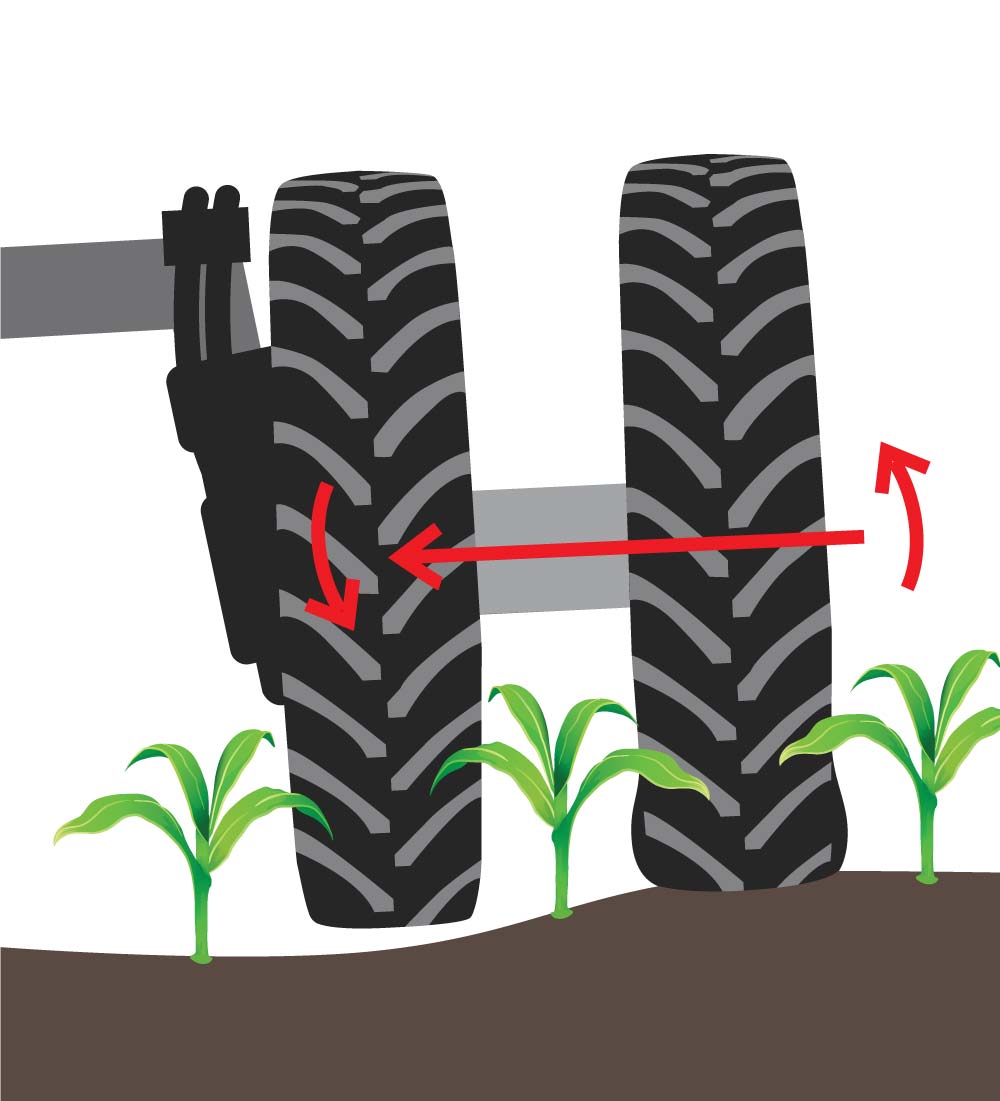
4. Duals will void your sprayer manufacturer’s warranty on most sprayers.
Both the sprayer manufacturer and the supplier of the sprayer duals hold no responsibility for any equipment failures or repairs that may result when you operate your sprayer with duals.
5. Sprayer floaters may be a better option.
If you don’t need the extra flotation for in-season applications, sprayer floaters (also known as sprayer flotation tires) are what we generally recommend. You’ll gain the same benefits from having extra rubber on the ground while maintaining a narrower total machine width. Also, since most sprayer manufacturers have a recommended flotation tire option, you won’t have to worry about voiding any manufacturer warranties.
.jpeg)
You can also use flotation tires for applications after some crops are up—such as small grains—and experience little to no loss of crop.
If you’re interested in NTS Tire Supply’s top picks for sprayer floater tires, we’ve put together a comprehensive list of the industry’s best options.
6. You may need duals on your sprayer’s rear axle, or both front and rear axles.
For sprayers that carry the majority of their weight on the rear axle (40/60 split or 30/70 split front to rear), installing duals on just the rear of the sprayer is usually sufficient. Typically, John Deere and older RoGators will have duals only on the rear. If your machine is closer to a 50/50 split, it’s best to have sprayer duals on all four corners. However, some operators still choose to have duals only on the rear.
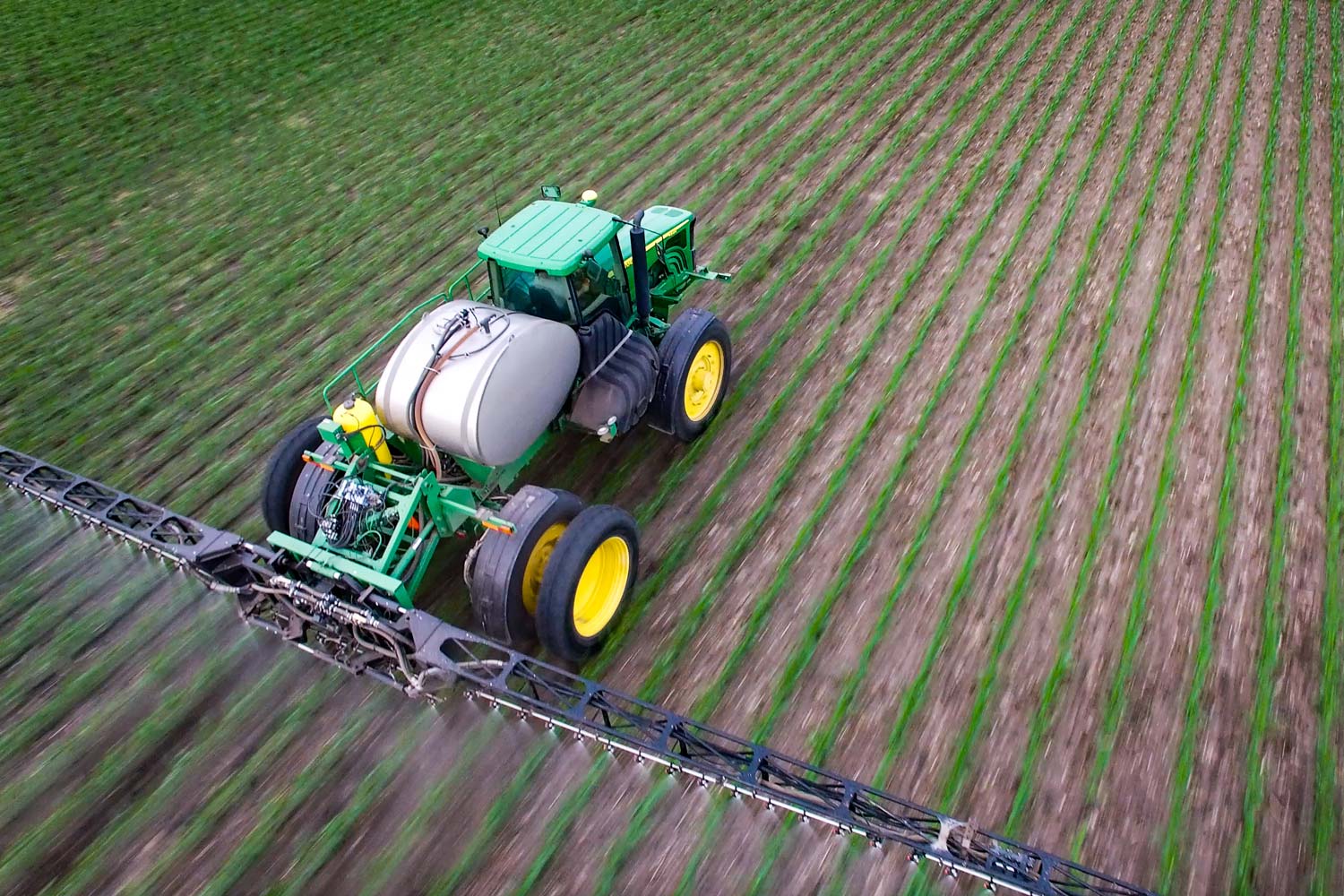
7. NTS Tire Supply has sprayer dual kits for every major brand.
This includes John Deere, Case IH, RoGator, Hagie, Miller, and New Holland sprayers. We often have a good selection of used sprayer tires, so you may be able to outfit your sprayer with duals for less money than new rubber (depending on our used tire availability). Or if you’d like new rubber, we can set you up with any major tire brand. And if we need to build wheels in order to make your project happen, we can do that too!

Want to know whether a dual kit, floaters, or simply an upgrade to single IF/VF sprayer tires is your best option? Talk with an expert at NTS Tire Supply and discover the best sprayer tire options for your needs, and drive your farm forward.

.png)
.jpg)




